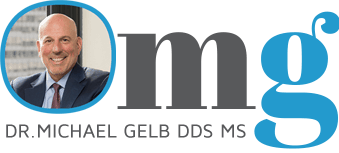There has been a paradigm shift in dentistry based on research from the last 5 years. 2018 will be the year of the Airway in Dentistry. When researchers went back and did sleep studies on patients wearing traditional, upper nightguards they found worsening of snoring, apnea and sleep disordered breathing in about 40-50 % of patients.
In the past, patients who clenched at night with sore jaws or worn or fractured teeth would be fit for a nightguard by their local dentist. Things are now changing. Clenching or bruxism have recently been linked to sleep disorders such as obstructive sleep apnea. Because of these new findings, The American College of Prosthodontics recommends that dentists screen for Sleep Related Breathing Disorder (SRBD) in all patients who clench or will undergo restorative dentistry. The American Dental Association (ADA) took it a step further in October 2017. A key component of their adopted policy statement included assessing a patient’s risk for SRBD as part of a comprehensive medical and dental history.
AirwayCentric® Dentistry places the Airway, Sleep and Breathing above all else in dentistry. Leaders from the leading schools of thought in Dentistry, namely Pankey, Dawson, Kois and Spear, all agree that Airway trumps all. Airway Dentistry has been a unifying force as dentistry focuses on improving health and wellness by decreasing systemic inflammation and increasing oxygenation and deep restorative sleep.
Bale and Doneen, leaders of a popular Cardiovascular Disease prevention program, state that they cannot succeed without the support of a knowledgeable dentist. Bale and Doneen have also identified 5 high risk oral pathogens that are causally related to Cardiovascular disease. The new nightguard helps decrease inflammation now associated with all chronic disease.
The New Nightguard
So, what is the nightguard of the future? Well, it goes a step further. Dale Bredesen of the Buck Institute at UCSF has identified Sleep and Airway in Cognitive impairment, dementia and Alzheimer’s.
When we see a child with ADD or an adult with difficulty concentrating, foggy brain, cognitive impairment, dementia or Alzheimer’s, we think of the Airway and its role in brain development, neurogenesis and synaptoblastic activity.
There is now a line drawn in the sand that dentists cannot close the airway and worsen snoring or SRBD.
The traditional nightguard might be acceptable for some patients who clench without narrow or collapsible airways. For others, following a sleep test, other oral devices may be necessary to maintain the integrity of the airway during sleep as well as during the day in some cases.
Musculoskeletal issues
The new nightguard may also be effective in alleviating clicking and locking of the jaw and generalized jaw tension. In trying times, stress is increased and with it, clenching. By adjusting the nightguard to focus the biteforce anteriorly, muscle tension can be lessened. By decompressing the jaw, we also decompress the nerve in the TMJ, the auriculotemporal nerve, a branch of the trigeminal nerve. This is also helpful in reducing or alleviating headaches.
Numerous studies have also shown improved heart rate variability with the appliance at the ideal height and anterior posterior position.
Some nightguards have an anti-retrusion ramp which keeps the lower jaw slightly forward to prevent slipping back or retrusion and collapsing of the jaw. We are incorporating lower retainers or Invisalign trays with the Upper appliance to avoid soreness or movement of the lower teeth. One of the ways these antiretrusion appliances work is by maintaining an open airway.
Brand Promise
We can now offer our patients added benefits:
Traditional Nightguards:
-Prevents wear of the teeth
-May or may not improve TMJ
-May worsen SRBD
-May worsen snoring
-May help with clenching
Nightguards 2.0:
-Will not close the airway
-Can alleviate clicking and locking
-Can alleviate headaches and improve neck pain
-May awaken more refreshed
-Better focus and memory
Oral device for snoring, UARS, Hypopnea and Apnea:
-Improved oxygenation
-Better sleep architecture
-Awaken refreshed
-Better mood and well being
-Plays a role in prevention of cardiovascular disease and memory
-Less reflux
-Manages clenching
-Manages clicking, locking and headache
What can you do?
See an Airway trained dentist.
Get a CBCT or a cone beam scan of your airway
Look at the AirwayCentric® Guided ACG appliances and devices for an integrated day/night solution.







